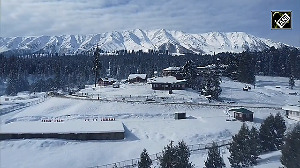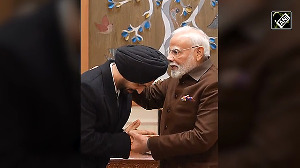For a wannabe terrorist like Faisal Shahzad, accused in the Times Square bombing plot, shopping for help in Pakistan is no problem as the country is like a supermarket with money and weapons freely available for potential jihadists. Pakistan is the hub of dozens of jihadi organisations like Jaish-e-Muhammad, Lashkar-e-Tayiba, Al Qaeda, Jalaluddin and Siraj Haqqani's network, Tehrik-e-Taliban and the list goes on, Fareed Zakaria, editor of Newsweek writes in its latest edition.
He says that some of the major separatist groups like the Lashkar-e-Tayiba, operate openly via front groups throughout Pakistan, noting that none of these terror outfits seem to have any difficulty in getting money and weapons. Thus, Shahzad, the 30-year-old Pakistani-American would -be terrorist of Times Square in New York, seems to have followed a familiar path, he writes. "We may never be sure what made him want to kill innocent men, women, and children. But his story shares another important detail with many of his predecessors: a connection to Pakistan," he says.
The British government has estimated that 70 per cent of the terror plots it has uncovered in the past decade can be traced back to Pakistan. Pakistan remains a terrorist "hothouse" even as jihadism is losing favor
Though Pakistan's government and military have taken tougher actions than ever before against terrorists, Zakaria points out that the generals continue to make a dubious distinction among terrorists. "Those that threaten and attack the people of Pakistan have suffered the wrath of the Pakistani Army. But then there are groups that threaten and attack only Afghans, Indians, and Westernersand those groups have largely been left alone," he says. Zakaria concludes that until the Pakistani military truly takes on a more holistic view of the country's national interestsone that sees economic development, not strategic gamesmanship against Afghanistan and India, as the key to Pakistan's securityterrorists will continue to find Pakistan an ideal place to go shopping.






 © 2025 Rediff.com -
© 2025 Rediff.com -